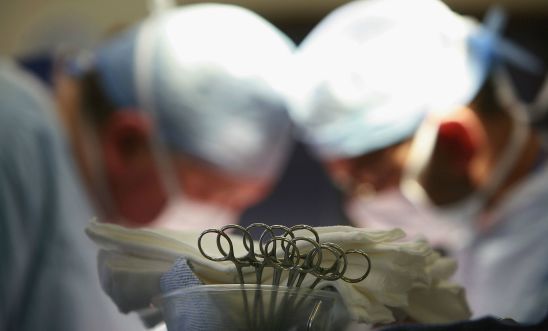
"I thought I was some kind of monster"

"I thought I was some kind of monster." These are the words of Sandrao from Germany who was born intersex – the term commonly used for individuals with variations of sex characteristics such as chromosomes, genitals and reproductive organs. Rather than being allowed to develop a gender identity, Sandrao was operated on numerous times as a child, until "pressed into the female role."
Our research in Germany and Denmark showed that children born with sex characteristics that do not fit with female or male norms risk being subjected to a range of unnecessary, invasive and traumatising medical procedures in violation of their human rights.
As common as having red hair
It is estimated that up to 1.7% of the global population have variations of sex characteristics – making it as common as having red hair.
Nevertheless, outdated gender stereotypes mean that so-called ‘normalising’ procedures are being carried out on children under 10, without full knowledge of the potentially harmful long-term effects they could be having.
Based on interviews with intersex individuals and health professionals in Denmark and Germany, as well as support and advocacy groups across Europe, we have found evidence that children born with variations in their sex characteristics underwent operations including:
- procedures to hide an enlarged clitoris, which carry risk of nerve damage, scarring and pain
- vaginal surgery which may involve multiple surgeries over time on young children to create or enlarge a vaginal opening
- irreversible testicular tissue removal
- surgery to reposition the urethra to the tip of the penis to create a penis that is considered functionally and cosmetically normal.
Long-term health complications
While sometimes these procedures are medically necessary to protect the life or health of a child, that is not always the case, and they can lead to a number of long-term physical and mental health complications.
"H" from Denmark, discovered by accident that he underwent urethral repositioning surgery as a five-year-old when he accessed his old medical journals. He told us: “When I think about what happened, I get upset, because it wasn’t something for anyone else to decide – it could have waited. I get sad when I think about the fact that it is considered necessary to operate on these children, only because other people think it should be done.”
Human rights at stake
The current approach to the treatment of intersex children across Denmark and Germany fails to protect the human rights of children, including the right to a private life and right to the highest attainable standard of health.
It’s clear that the Danish and German authorities are failing in their duty to protect these children. With the current lack of medical research and knowledge in this area, life-changing and irreversible decisions should not be being made when the child is too young to have a say in what is being done to them.
Stop perpetuating harmful gender stereotypes
We’re calling on legislators and medical professionals in both countries to ensure that no child is subjected to non-emergency, invasive and irreversible treatment.
Medical professionals must also receive training on gender and body diversity, authorities must stop perpetuating harmful gender stereotypes, and Germany and Denmark must ensure that those who have suffered from unnecessary medical interventions are given access to compensation.
At the best of times, surgery can be an incredibly harrowing experience for children. Where possible, major decisions about what is being done to their bodies must be postponed until they can meaningfully have a say in in those discussions.
- Downloads
- REPORT - First, Do No Harm.pdf
Our blogs are written by Amnesty International staff, volunteers and other interested individuals, to encourage debate around human rights issues. They do not necessarily represent the views of Amnesty International.
0 comments